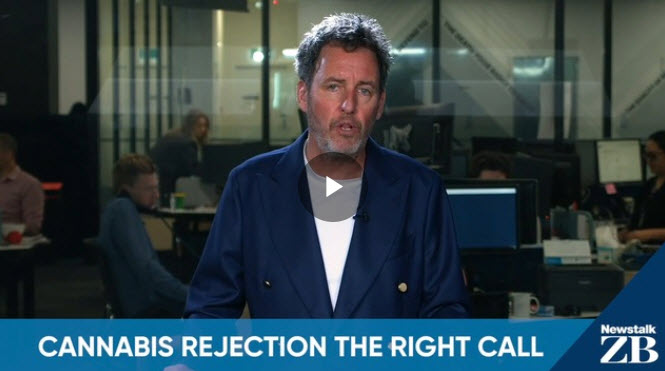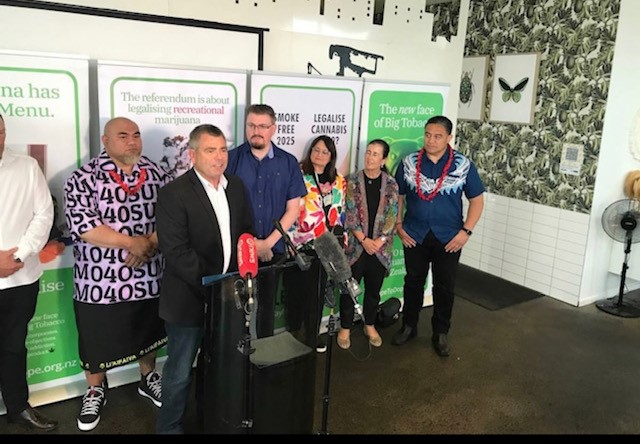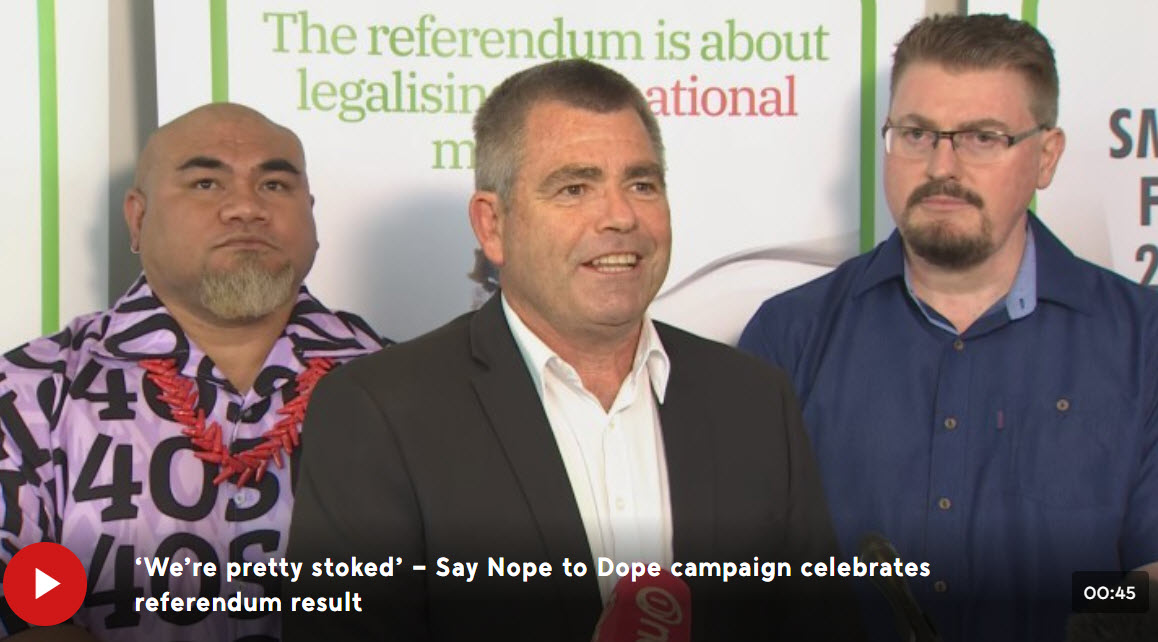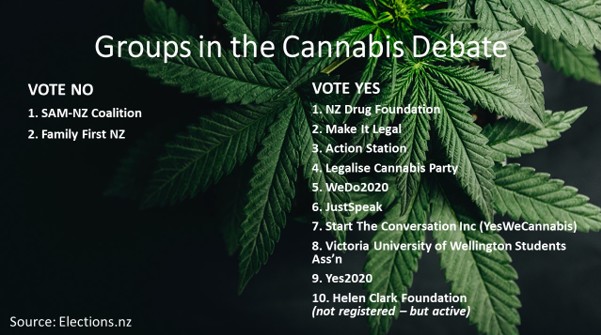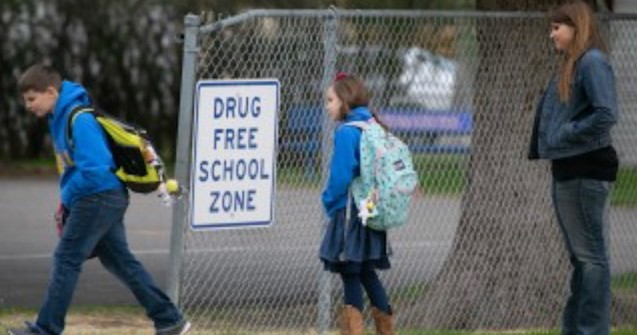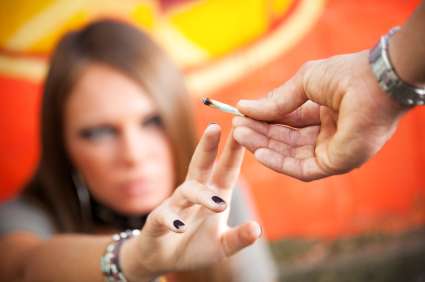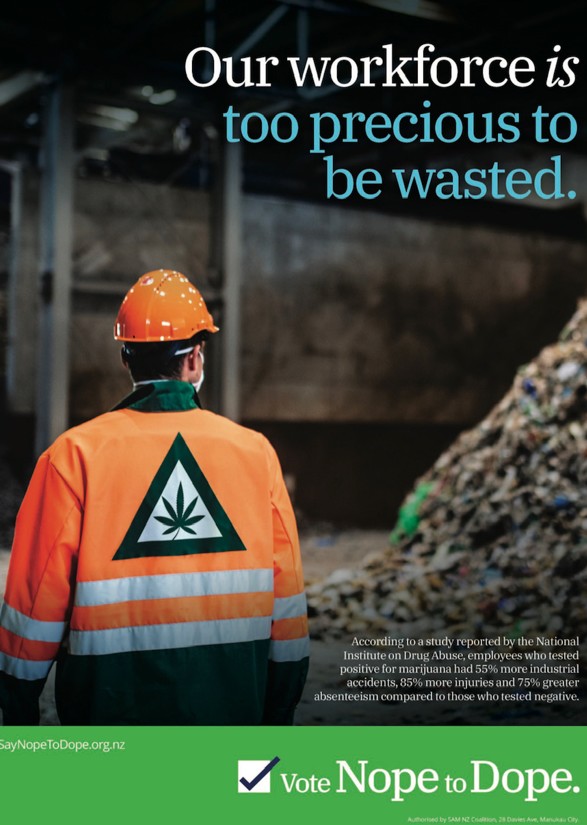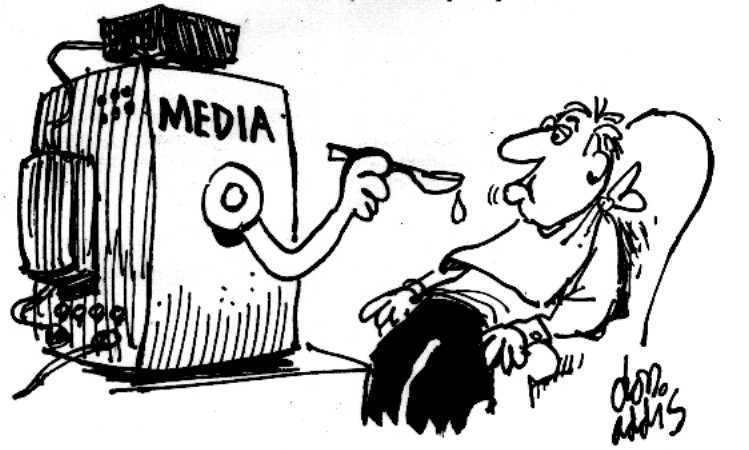New Zealand has a recent history of enacting social reforms, including the introduction of an emissions trading scheme back in 2008 and the legalisation of same-sex marriage in 2013.
But Ironside said that legalising cannabis was different as it would affect all citizens, regardless of whether they chose to use marijuana.
“Many other types of reform don’t affect anyone else, such as same-sex marriage. This reform affected everybody, it meant teenagers using cannabis; the use of cannabis when people drive or are at work. This would impinge on everyone’s lives, it wasn’t just about what happens in the privacy of your own home,” he said.
READ MORE: https://www.smh.com.au/world/oceania/nz-votes-yes-to-euthanasia-no-to-legalising-cannabis-20201030-p56a3m.html
Chlöe Swarbrick’s message to cannabis haters after failed referendum: ‘Well done – it still exists’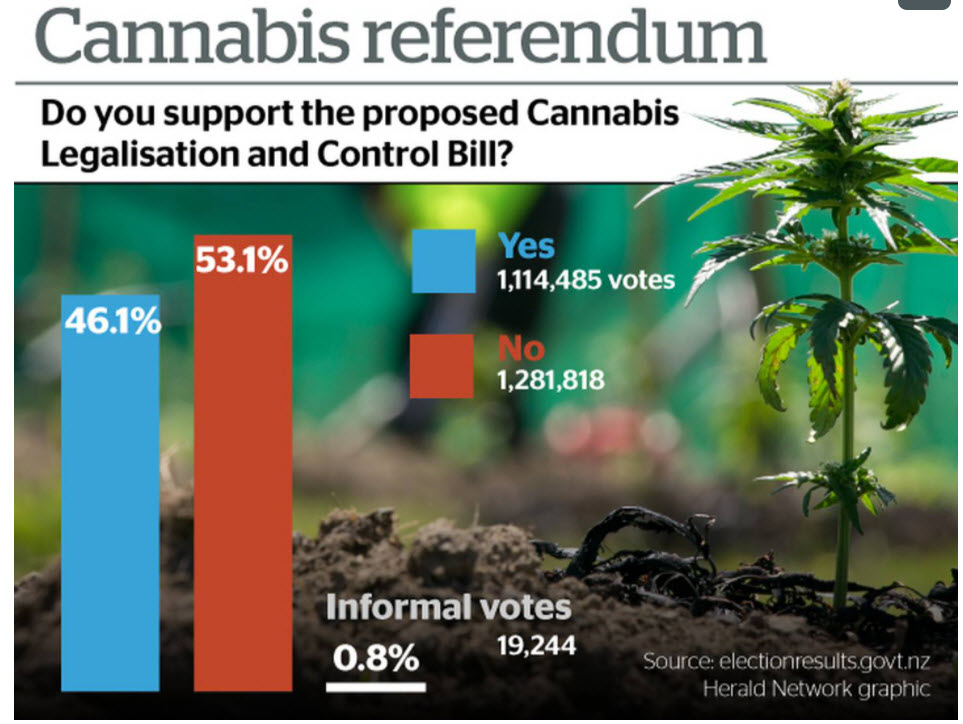
NewsHub 31 October 2020
Green MP Chlöe Swarbrick, a staunch advocate for legalising cannabis, has sarcastically congratulated her opponents on their apparent victory in the referendum.
Preliminary results suggest cannabis, which has been tried by the vast majority of Kiwi adults, will remain illegal – the ‘no’ camp ahead 53-46, with special votes yet to be counted.
Swarbrick, a rarity in Parliament as a vocal supporter of legalisation, took a shot at what she called the “perversely named” Say Nope to Dope campaign on Newshub Nation, a day after the results came in.
“I’m sorry guys, cannabis still exists,” she said, directly addressing the camera.
She also criticised fellow MPs who refused to reveal publicly how they planned to vote. Prime Minister Jacinda Ardern and Justice Minister Andrew Little, whose name was on the Cannabis Legalisation and Control Bill, both voted for it – but wouldn’t admit that before the results were released.
In August Little said he was only 50/50 on whether he’d vote for legalisation, and Ardern always said she didn’t want to influence voters either way.
Swarbrick refused to criticise Ardern or Little directly – “I’m not going to give you a headline that doesn’t actually help the cause” – deciding to label “the majority of parliamentarians” hypocrites instead.
READ MORE: https://www.newshub.co.nz/home/politics/2020/10/chl-e-swarbrick-s-message-to-cannabis-haters-after-failed-referendum-well-done-it-still-exists.html
Cannabis referendum: Greens not giving up on ‘yes’ vote yet
NewsHub 31 October 2020
New Zealand Medical Association Dr Kate Baddock said the New Zealand public has spoken and the votes needed to be respected.
She said the NZMA position has been for decriminalisation as a social compromise, but she does not believe New Zealand is ready for legalisation.
“If New Zealanders had been ready for legalisation they would have voted for it … the way the vote has gone buys some time for the evidence to come out from those countries that have legalised cannabis.
“When the question recycles, which I’m sure it will, there will be more evidence to inform New Zealanders’ decision making.”
She said she agrees with the statement that Māori are disproportionately harmed by stricter laws, and New Zealand has an increased responsibility via the Treaty of Waitangi, and said that is part of why the NZMA supported decriminalisation.
She said there is room for expanding or consolidating decriminalisation.
In a statement, associate professor Chris WIlkins, who was on the Prime Minister’s chief science advisor’s expert panel on cannabis, said the narrow vote on the cannabis referendum reflected public uncertainty about key issues in the debate including:
- whether the proposed regime would be effective at restricting young people’s access to cannabis
- potential negative consequences for driving safety
- fears the proposed regime would have a counterproductive effect on anti-smoking campaigns
- whether the legal cannabis industry could be controlled in the long term (based on the experience with alcohol)
- whether legalisation and normalisation of cannabis use may lead to rising use and dependency with related health and social costs
- whether legalisation would really reduce the black market and the power of drug-selling gangs
“One important positive, which potentially comes from the result, is New Zealand will now have the opportunity to study cannabis legalisation reforms and outcomes currently underway overseas in US, Canada, and Uruguay over a number of years and learn important lessons about what policy settings and regulatory frameworks are effective,” Wilkins said.
But Justice Minister Andrew Little told Checkpoint he felt that decriminalisation was a half-way stop that creates more problems than it solves.
“The Netherlands chief of police said they’ve had to turn a blind eye to the criminal elements supplying the coffee shops where people can use legally.”
“It creates a huge complex mess that we wouldn’t want to replicate,” he said.
Little said the electorate has spoken, and the Government has no other proposals for drug law reform this term.
He said voters have made a clear-cut decision, and the Government will respect that.
Little said he believed legalising cannabis was a step too far for people.
READ MORE: https://www.newshub.co.nz/home/politics/2020/10/cannabis-referendum-greens-not-giving-up-on-yes-vote-yet.html
Referendum results live: NZ votes yes on euthanasia, no on cannabis legalisation
NZ Herald 30 October 2020
Bob McCoskrie of the Say Nope to Dope campaign told media the group was “pretty stoked” with the result on cannabis legalisation.
He said the campaign would need to wait until full results were revealed, but they were happy with the preliminary outcome.
He also credited the “yes” campaign for encouraging public debate.
“It’s good news for young people they are not going to be included in a social experiment, we can leave that to the Americans and Canadians,” a campaign spokesman said.
“This is the right result, we don’t expect young people to applaud us, but we have used our freedom for this.”
The group commended the Prime Minister for not stating her position ahead of the referendum, and “leaving it to the people”.
READ MORE: https://www.nzherald.co.nz/nz/politics/referendum-results-live-nz-votes-yes-on-euthanasia-no-on-cannabis-legalisation/LBKXYT2QB5IZLLCZJ7EVM6D4SY/
A generation-long battle for euthanasia wins, a one-shot bid to legalise cannabis fails
Stuff co.nz 30 October 2020
Aaron Ironside, of the Say No To Dope campaign, celebrated the “common sense” result, a message echoed by National Party drug reform spokesman Nick Smith.
“This is a victory for common sense … New Zealanders have rightly concluded that legalising recreational cannabis would normalise it, make it more available, increase its use and cause more harm,” Smith said in a statement.
READ MORE: https://www.stuff.co.nz/national/politics/123258552/a-generationlong-battle-for-euthanasia-wins-a-oneshot-bid-to-legalise-cannabis-fails

